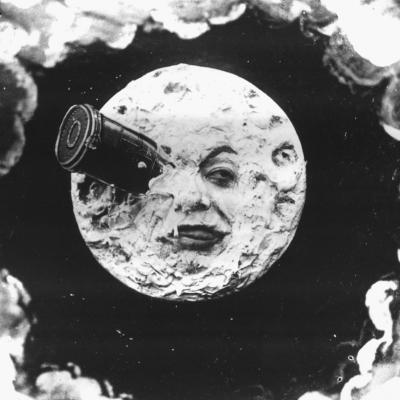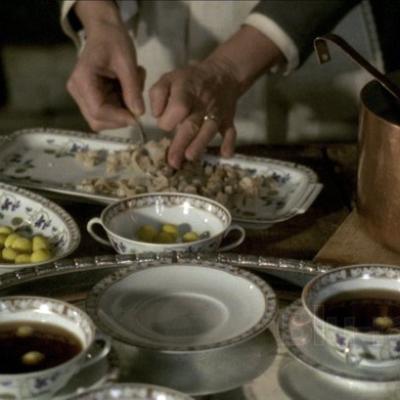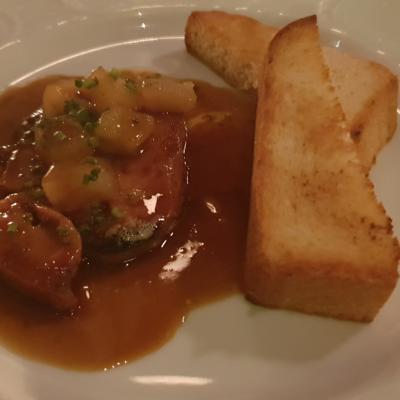When you imagine the bulging 18th century banquet tables of this French film you may consider this is a food film for the liking of chefs, cooks, bon vivants, epicures, gastronomes, gourmands, gourmets, food lovers, foodies, food bloggers, food instagrammers or whatever other description you are keen to use to describe your food loving people these days.
Take a step back to 1782, and consider that the first restaurant is not only of huge historical consequence in food history, but it is a social and cultural revolution that not only coincides with the French Revolution, but is enabled by the change that brings. So there are as much social commentary and layers of intrigue here in this plot to keep even the non-foodie (if there is such a thing and such a word) captivated by this most delightful film, Delicious.
Delicious is a film for everyone, which can be enjoyed at the simplest level just enjoying the food, and the story of a chef, Manceron and how he collaborates with his apprentice to open a restaurant. Delicious is charming. It is funny. And it touches your heart as well as your tastebuds. Delicious is a sensory delight that masters light and sound, affection and compassion. Yet, dig deeper. And there are complexities to be explored, but only if you wish.
Sydney Scoop explores Five Q&A with director Éric Besnard.
You make the arrival of the first restaurant coincide with the French Revolution...
In fact, its birth spanned more than fifteen years and the first restaurant to see the light of day dates from 1782. It was partly to Turgot, Louis XVI’s controller general of finance, that it owes its appearance, thanks to the abolition of corporations and the liberalisation of trade put in place to lower prices and try to curb the economic crisis that is hitting the country. From 1776, merchants, until then confined to the marketing of a single product, could now sell several at the same time. The desertion of the nobles who, feeling the wind of revolution blowing, emigrate, leaving their cooks on the floor - added to the ideas of equality advocated by the philosophers of the Enlightenment - will do the rest. At the beginning, they are mainly caterers, then someone has the idea of a tablecloth, another for the menu, for the buffet ... And, to stay in the historical truth, it is in Paris, at the Palais Royal, that this movement was really born as well as the first establishment. Customers come to eat there with prostitutes from the neighbourhood. It’s very licentious at the time.
Why then did you choose to move the plot to the provinces?
Paris is not France. The France that interests me is that of the land, of the Nationale 7. The idea of transforming a post office was quickly imposed. Delicious is not about the very first restaurant, it is one of the first, and in my head, the first in the provinces. And it was interesting to create a character that was symbolic of that creation. None of the historical figures appeared, to me, commensurate with the invention ...
From the first images of the film, we understand that gastronomy is reserved for the nobles. Only they know how to appreciate it. The poor, for their part, must be content to feed themselves ....
The connection between food and politics has always been a central subject in history. Moreover, if we look at the situation in our country today, we can see that we are not very far from what was happening then. For forty years, the gaps have grown steadily between those who know, who are connected, those who have taste and good taste, and those who have nothing. The story repeats itself...
At the time of the film, the price of wheat is reaching levels never seen in a century. People are hungry, discontent is mounting, and they will start to take to the streets. The 18th century was marked by hunger riots: The croquant rebellions, the nu-pieds revolt, the bonnets rouges (“red caps”) movement.
They [nobles] openly mock the délicieux, that famous potato and truffle turnover that Manceron allowed himself to add to feast...
In the 18th century, the cook was someone who was asked to reproduce dishes; certainly not to invent any. He has no initiative. Manceron therefore disobeyed by offering one of his creations, but he committed a more serious crime: that of having cooked products growing underground, the church believed that everything that came from it was not only not edible but also proved to be the carrier of diseases such as leprosy. The potato and the truffle were considered products of the devil.
At this time, the nobility and clergy still believed in a heavenly scale of food. The more aerial they are, the more divine they are; a pigeon, that’s perfect, a cow, closer to the ground, is less good ... The potato, while very nutritious, will take a hundred years to establish itself in France. And it was only with a trick from Parmentier, who convinced the king to keep potato fields to make the peasants understand their value, that it managed to enter French customs.
Back in the kitchen, Manceron has two obsessions: developing local cuisine by banning spices and rediscovering natural flavours. Was it already fashionable? Is he a pioneer?
At this point in history, we are still cooking the recipes of the Middle Ages, listed by Taillevent and La Varenne in their books. The dishes are endlessly reproduced, dishes rich in spices and sugar discovered during those years, aesthetically very complicated to make with feathers and rooster ridges at the top. But fashion is starting to change, and we are gradually coming back to the real tastes of food; Manceron is in this movement. He wants fresh vegetables and spices from the garden. He wants to cook stews. This regional cuisine interests me infinitely more than the image of luxury with which French cuisine is too often associated.
Delicious opens Boxing Day 26 December 2021
www.palacefilms.com.au/delicious


